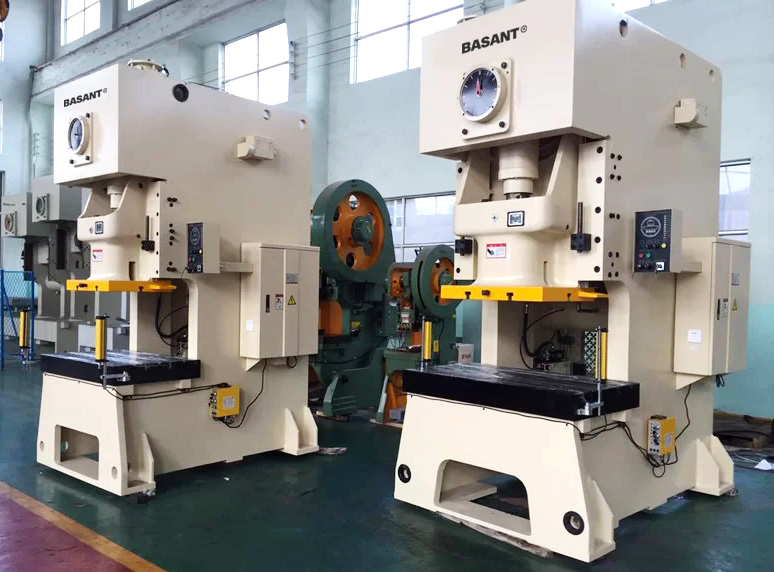» Basant Power Presses Machine Range
- Home
- /
- Power Presses
What are Power Presses?
Types of Power Presses
- Mechanical Power Presses– Uses a motor-driven flywheel and clutch mechanism to deliver high-speed, repetitive strokes.
- Hydraulic Power Presses– Uses hydraulic cylinders to generate force, offering precise control over pressure and stroke speed.
- Pneumatic Power Presses– Operates using compressed air, suitable for lighter operations.
- Servo Presses– Uses a servo motor for programmable control over speed and force, improving precision.
Common Applications of Power Presses
- Stamping– Cutting and forming sheet metal.
- Punching– Creating holes in materials.
- Blanking– Cutting out flat shapes.
- Bending & Forming– Shaping metal parts.
Basant Power Presses are oldest & No. 1 Power Presses manufacturer & Suppliers in India. Since 1958 Beside Punjab Basant Power presses are Installed in Delhi NCR, Haryana, Pune Maharashtra, Chennai Tamilnadu, Noida Uttar Pradesh, Uttarakhand, Madhya Pradesh, Bangalore Karnataka, Hyderabad, Andhra Pradesh and Other States of India. Its Our Quality Durability and after sales services that Basant power presses are far ahead of other press manufacturers.
Range of Power Presses & other Tool Room Machinery Manufactured by BASANT GROUP.
Manufacturers of all type of Mechanical & Pneumatic Power Presses i.e. Pillar type (Marshal type), inclinable type (American Type) and Heavy Duty Crank less Presses of 75 tons, 100 , 150. 200, 250, 300, 500 tons. We also make SPM Power presses up to 1000 tons with pneumatic Clutch and Die Cushion.
Why Basant Power Presses?
Safety Standard, Hazards & Precautions
We Follows ANSI B11.1 Safety standards for our power press Machine.
Power presses pose significant risks, including crush injuries, amputations, and fatalities if not operated safely. Key safety measures include:
- Fixed guards to prevent access to hazardous areas.
- Interlocked guards that stop the machine when opened.
- Laser Sensors to detect hand presence.
Safety Devices
- Two-hand controls requiring simultaneous operation.
- Emergency stop buttons for quick shutdown.
- Anti-repeat mechanisms to prevent accidental double strokes.
Maintenance & Best Practices
- Lubricate moving parts regularly.
- Inspect dies for cracks or misalignment.
- Monitor clutch/brake performance.
- Keep work areas clean to prevent slips/falls.










